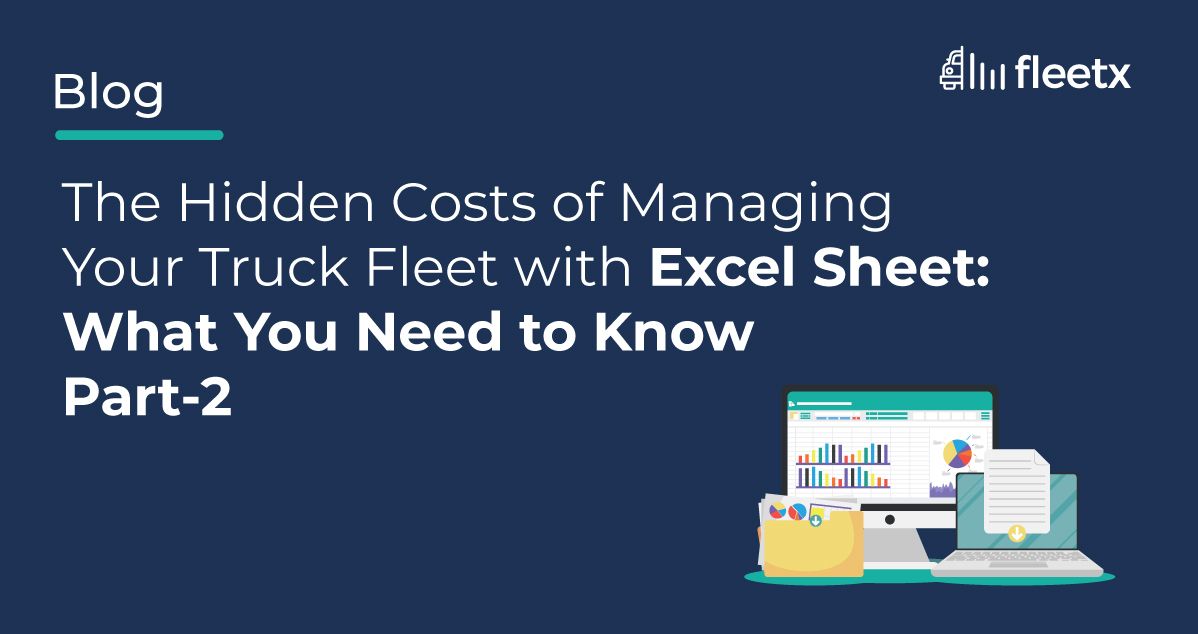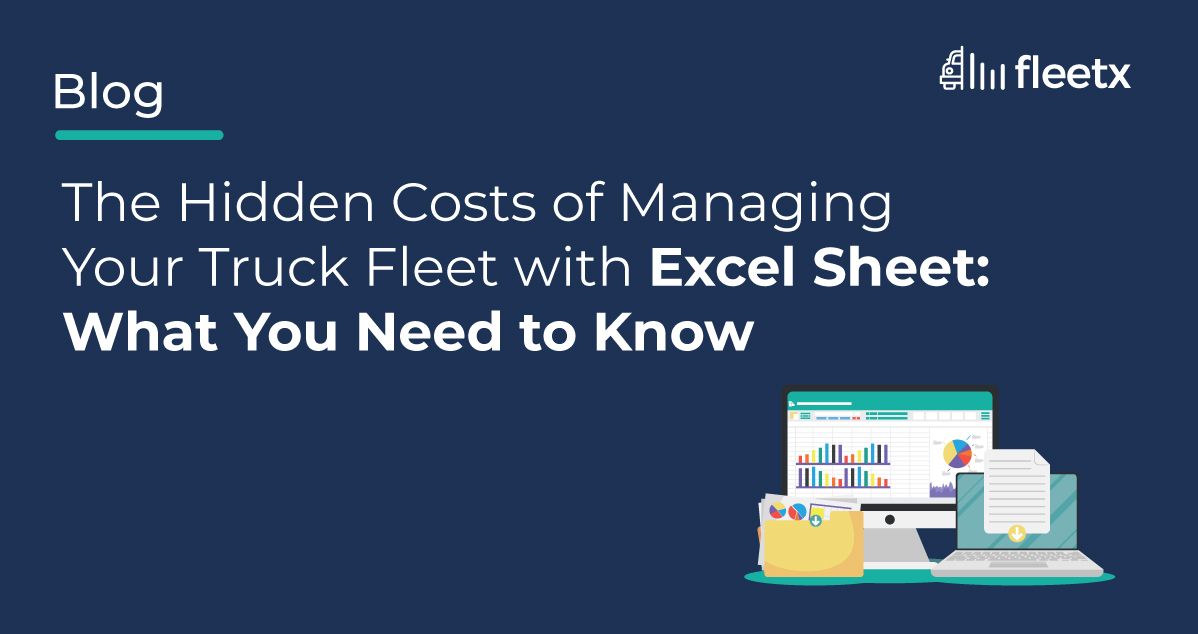
Managing a truck fleet is a complex task that requires real-time data, accurate information, and efficient operations. Many companies still use Excel sheets to manage their truck fleets, but this approach has several limitations that can lead to hidden costs, such as lost time, inaccurate data, and missed opportunities. In this article, we will discuss some of the popular alternatives to Excel sheets for managing truck fleets and how to transition to a modern fleet management solution.
Alternatives to Excel Sheet for Managing Your Truck Fleet
Fleet Management Software
Fleet management software is a comprehensive solution that helps businesses manage their truck fleets efficiently. It provides real-time data on vehicle location, fuel consumption, and driver behavior, which can help companies optimize their operations and reduce costs. Fleet management software also includes features such as vehicle maintenance tracking, driver performance monitoring, and dispatching, which can improve fleet safety and productivity.
Vehicle Tracking System
Vehicle tracking system use GPS technology to track the location of trucks and provide real-time data on their movements. This technology can help companies optimize their routes, reduce fuel consumption, and improve delivery times. Vehicle tracking system also include features such as driver behavior monitoring, geofencing, and alerts, which can help companies improve fleet safety and reduce costs.
Transport Management System
Transport management system can help you manage your entire supply chain, from planning to execution. It can provide you with real-time visibility into your operations, which can help you optimize your processes and reduce costs.
APIs and Mobile Apps
Fleet Management software solutions also offer mobile apps and APIs that allow users to use the fleet management solutions through their phones from anywhere. These apps allow drivers to report their hours of service, vehicle inspections, and fuel consumption in real-time, which can help companies optimize their operations and reduce costs. Mobile apps also include features such as route optimization, turn-by-turn navigation, and load tracking, which can improve fleet productivity and efficiency.
Comparing Fleet Management solutions with Excel
Now that we've discussed some of the alternatives to Excel, let's compare and contrast their features and benefits with Excel sheets.
Real-time Data
One of the major drawbacks of using Excel sheets is that you're working with outdated data. With modern software solutions, you can get real-time data on the location of your trucks, driver behavior, and delivery status. This can help you make informed decisions and optimize your operations.
Automated Processes
Excel sheets require manual data entry, which can be time-consuming and prone to errors. With software solutions, you can automate many of your processes, which can save you time and reduce the risk of errors.
Improved Visibility
With modern software solutions, you can get a bird's-eye view of your entire supply chain. This can help you identify bottlenecks, optimize routes, and reduce costs.
Potential Cost Savings and ROI
Switching to a modern software solution can come with some upfront costs, but the potential cost savings and ROI can make it worth it. By optimizing your operations, you can reduce fuel costs, improve delivery times, and increase customer satisfaction. You can also reduce the risk of accidents and legal liabilities by monitoring driver behavior and ensuring compliance.
How to Transition from Excel Sheet to a Modern Fleet Management Solution
- Identify Your Needs - The first step in transitioning from Excel sheets to a modern fleet management solution is to identify your company's needs. What are your pain points? What are your goals? What features do you need in a fleet management solution? By answering these questions, you can narrow down your options and choose a solution that meets your specific needs.
- Choose the Right Solution - Once you have identified your needs, you can start researching and evaluating fleet management solutions. Consider factors such as cost, functionality, scalability, and ease of use when choosing a solution. It is also important to choose a solution that integrates with your existing systems and workflows.
- Train Your Employees - Transitioning to a new fleet management solution can be challenging, especially for employees who are used to Excel sheets. It is important to provide adequate training to your employees to ensure that they are comfortable using the new solution. This can include classroom training, online tutorials, and hands-on training.
- Monitor Performance - Once you have transitioned to a new fleet management solution, it is important to monitor its performance and evaluate its impact on your business. Track key metrics such as fuel consumption, vehicle utilization, and driver behavior to ensure that the solution is delivering the expected ROI.
Conclusion
Excel sheets may have been a popular way to manage truck fleets in the past, but they are no longer a viable solution for companies that want to optimize their operations and reduce costs. By transitioning to a modern fleet management solution, companies can gain real-time data, accurate information, and efficient operations, which can help them stay competitive in today's market.






